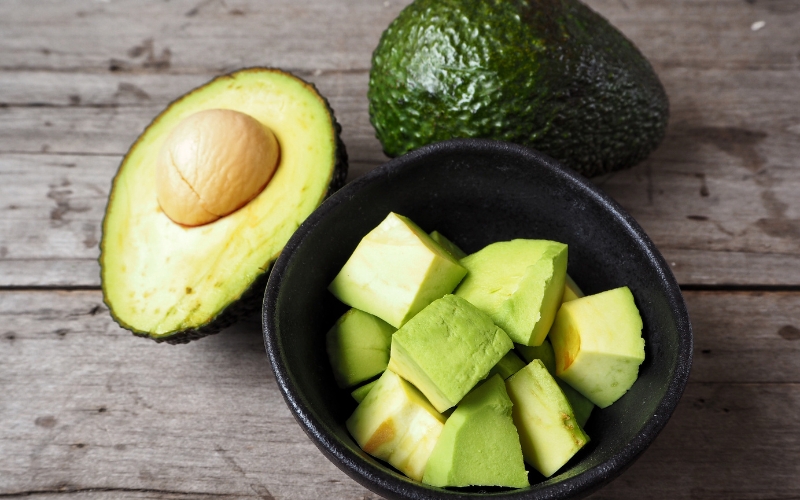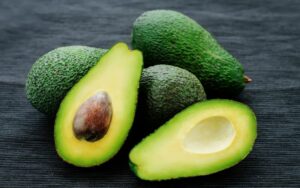Avocado, often hailed as a superfood, has gained immense popularity in recent years due to its unique taste, creamy texture, and numerous health benefits. Many individuals considering weight loss wonder about the calorie content of avocados and whether they can be included in their diet. In this article, we will delve into the topic of calories in avocado, explore its nutritional profile, and answer frequently asked questions surrounding this versatile fruit.
How many Calories in an Avocado: Exploring the Numbers
To understand the calorie content of avocados, it is important to consider different serving sizes. One medium-sized avocado typically weighs around 200 grams and contains approximately 322 calories. However, for a more precise measurement, let’s look at the calorie count in 100 grams of avocado, which is around 160 calories. It’s worth noting that the calorie content may vary slightly depending on the specific variety and size of the avocado.
To truly comprehend the calorie content of avocados, it is crucial to examine the serving sizes.
The following table outlines the approximate calorie count for different serving sizes of avocado:
| Serving Size | Calories |
|---|---|
| 1/4 medium | 80 |
| 1/2 medium | 120 |
| 1 medium | 240 |
As depicted in the table above, the calorie count of avocados can vary depending on the serving size. It is important to be mindful of portion sizes to accurately track your calorie intake.
Understanding Avocado’s Nutritional Value
While calories are an essential aspect of a food item, it is equally important to consider the overall nutritional value. Avocados are rich in healthy fats, vitamins, and minerals, making them a nutrient-dense addition to any diet. Let’s explore the nutritional components of avocados:
Healthy Fats
Avocados are renowned for their high content of monounsaturated fats, which are considered heart-healthy fats. These fats help lower bad cholesterol levels and reduce the risk of heart disease. Incorporating avocados into your diet can contribute to a well-balanced intake of healthy fats.
Fiber
Fiber is an essential component of a healthy diet, aiding in digestion and promoting satiety. Avocados are an excellent source of dietary fiber, with an average of 10 grams of fiber per medium-sized fruit. Consuming avocados can help regulate your digestive system and keep you feeling full for longer.
Vitamins and Minerals
Avocados boast an impressive array of vitamins and minerals, including vitamin K, vitamin E, vitamin C, and various B vitamins. Additionally, they contain minerals such as potassium, magnesium, and folate. These nutrients play crucial roles in maintaining overall health and supporting various bodily functions.

Calories in Avocado Toast
Avocado toast is a popular breakfast or snack that is made with mashed avocado spread on toast. The calories in avocado toast will vary depending on the type of bread used, the amount of avocado used, and any additional toppings.
A basic avocado toast made with 1 slice of whole wheat bread and 1/2 of a medium avocado (about 50 grams) contains about 195 calories. This includes 11 grams of fat, 20 grams of carbohydrates, and 5 grams of protein.
If you add additional toppings to your avocado toast, such as eggs, cheese, or vegetables, the calories will increase. For example, a slice of avocado toast with an egg and a slice of cheese contains about 300 calories.
Overall, avocado toast is a relatively healthy breakfast or snack option. It is a good source of healthy fats, fiber, and vitamins. However, it is important to be aware of the calories in avocado toast, especially if you are trying to lose weight.
Here are some tips for reducing the calories in avocado toast:
- Use a smaller slice of bread.
- Use less avocado.
- Add lighter toppings, such as sprouts or tomatoes.
- Spread the avocado on the toast instead of mashing it.
By following these tips, you can enjoy avocado toast without overdoing it on the calories.
Is Avocado Good for Weight Loss?
Avocado is indeed a valuable addition to a weight loss diet. Although it is relatively high in calories compared to many other fruits and vegetables, the calories in avocados come from healthy fats, which provide numerous health benefits. The monounsaturated fats found in avocados can promote satiety and help control appetite, making you feel fuller for longer periods. Additionally, the fiber content in avocados aids digestion and contributes to a healthy gut, further supporting weight management efforts.
Calories in a Small Avocado
A small avocado has about 150 calories. This is significantly less than the calories in a medium or large avocado, which can have up to 240 calories. However, even though a small avocado is lower in calories, it is still a nutrient-dense food. Avocados are a good source of healthy fats, fiber, and vitamins. They can help improve cholesterol levels, reduce inflammation, and protect against heart disease.
How Many Calories are in a Large Avocado?
A large avocado has about 322 calories. This may seem like a lot, but avocados are a nutrient-dense food that is packed with healthy fats, fiber, and vitamins. They are also a good source of potassium, which is an important mineral for heart health.
If you are watching your calorie intake, you can still enjoy avocados in moderation. A half of a large avocado has about 161 calories, which is a more reasonable amount. You can also enjoy avocados in smaller portions, such as a spoonful of guacamole or a slice of avocado toast.
Is It OK to Eat an Avocado Every Day?
Including an avocado in your daily diet can be a healthy choice, thanks to its rich nutritional profile. Avocados are packed with essential vitamins and minerals, including vitamin K, vitamin E, vitamin C, and various B vitamins. They also contain minerals like potassium and magnesium, which play vital roles in maintaining overall health. However, since avocados are relatively high in calories, it is important to be mindful of your overall calorie intake and portion sizes to avoid exceeding your daily caloric goals.
Conclusion
In conclusion, avocados are a nutrient-dense fruit that can be part of a balanced diet, including weight loss plans. While avocados contain calories, they provide healthy fats, fiber, vitamins, and minerals that offer various health benefits. When consumed in moderation and as part of a well-rounded eating plan, avocados can contribute to weight management and overall well-being. So go ahead and enjoy the deliciousness of avocados while reaping their nutritional rewards! Do not forget to read the Proper Storage Tips for Avocados article for keeping the nutritional benefits.




